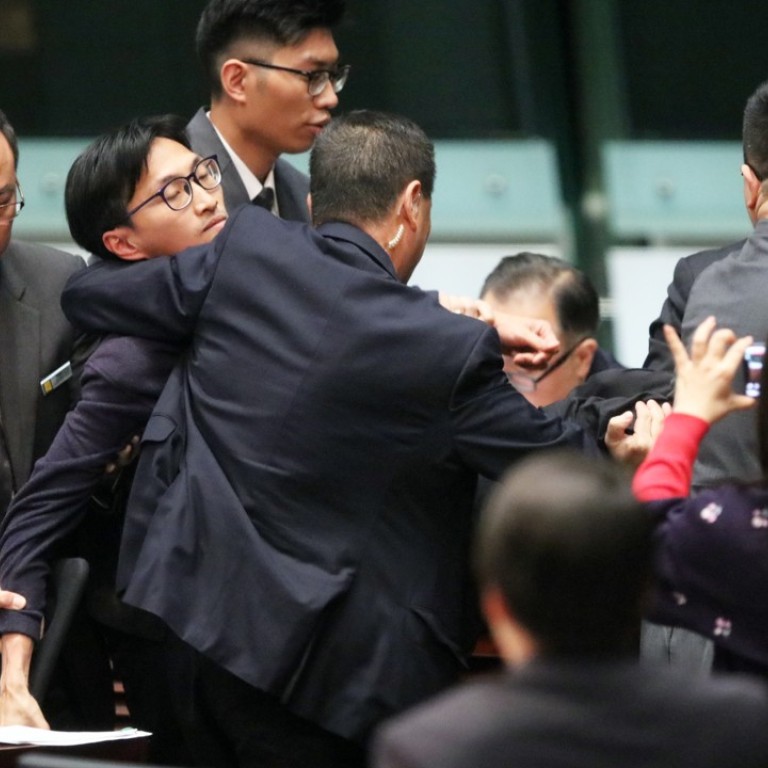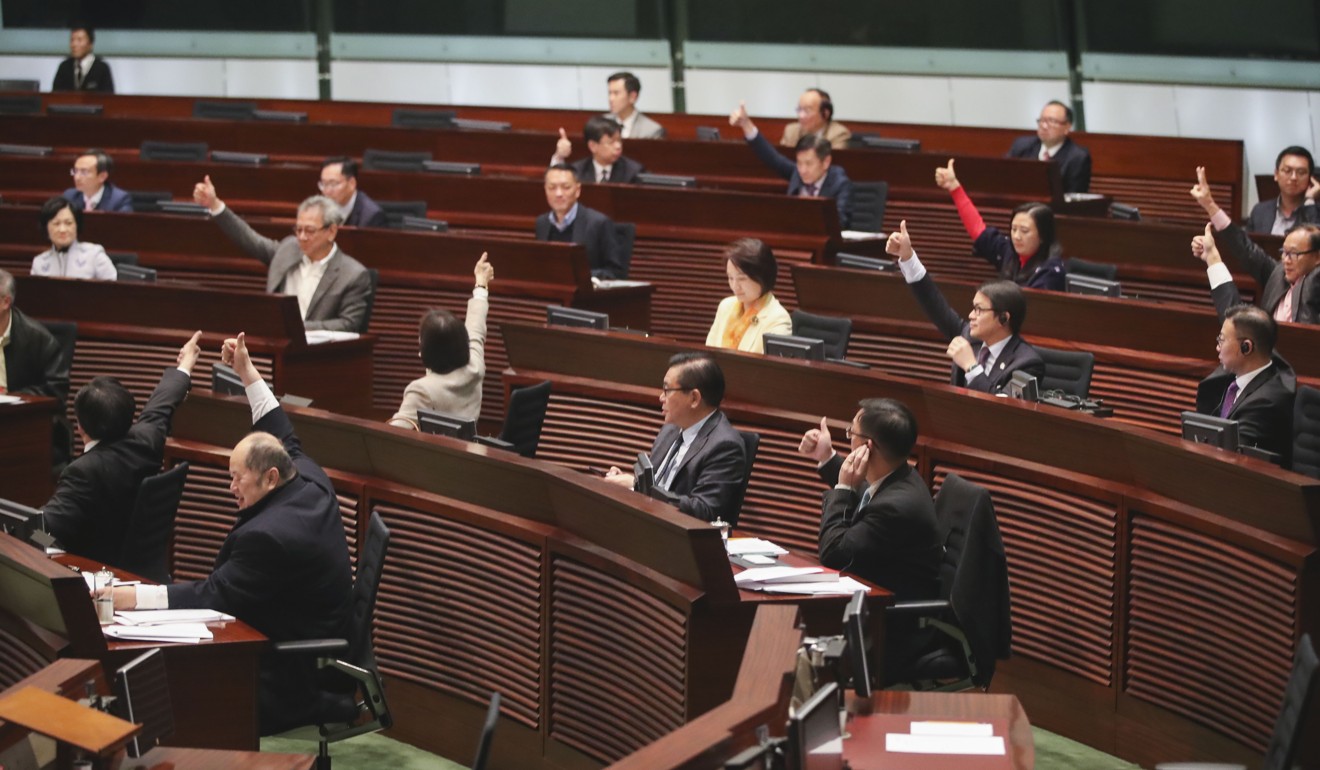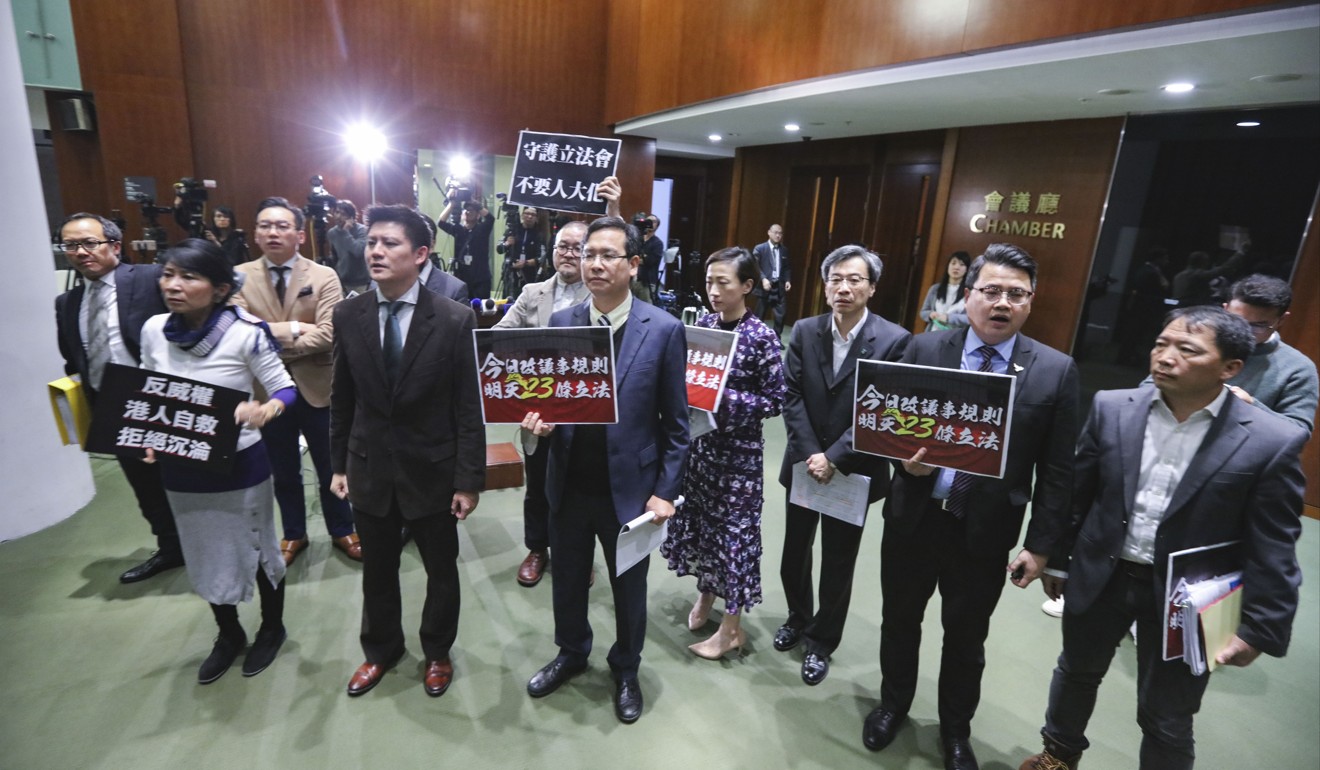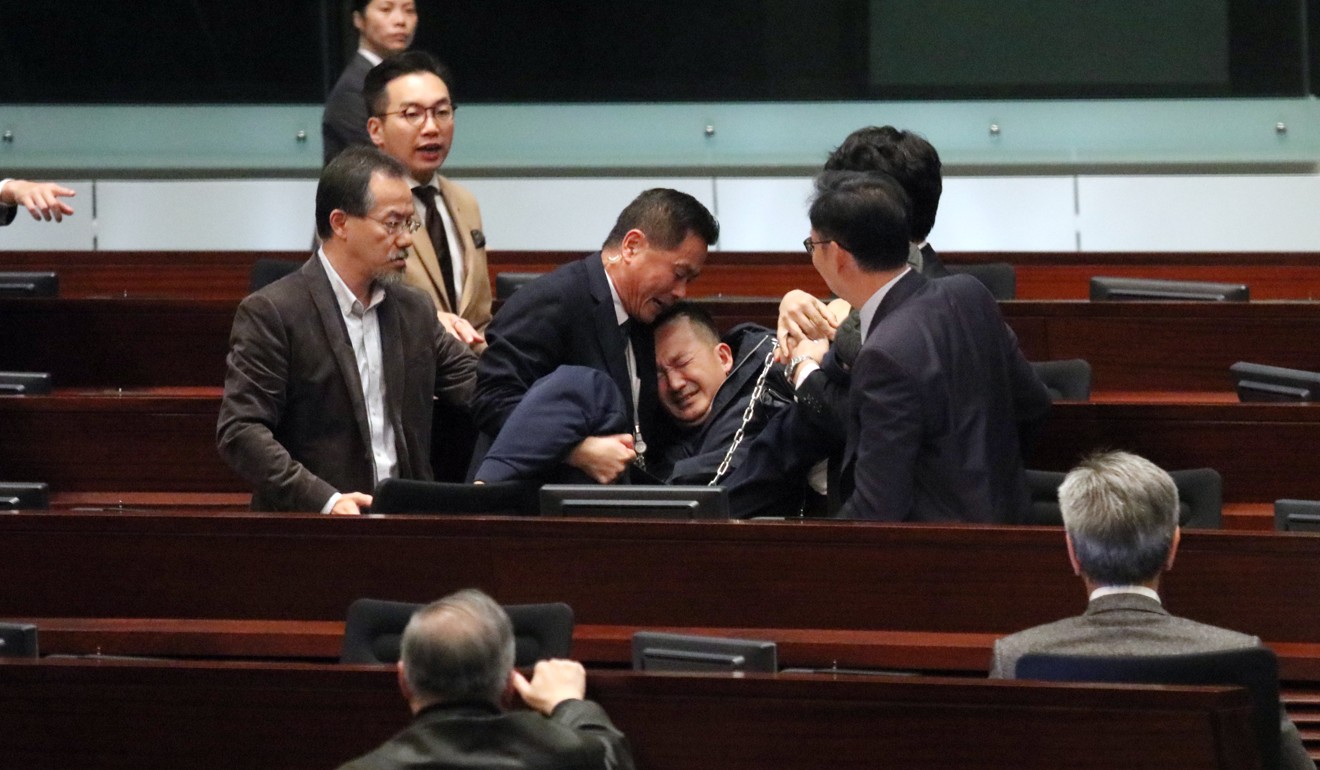
Legco approves rule book changes after dramatic debate with 11 pan-dems booted out of chamber
24 amendments by the pro-establishment bloc were passed, with 24 proposals by the pro-democracy camp vetoed
The 24 changes, proposed by the pro-establishment bloc to curb filibustering, were staunchly opposed by the pro-democracy camp, which said it would stop them from being an effective check on the city’s government, and allow the administration to bulldoze through controversial legislation.
One additional change, proposed by the house rules committee, on correcting a Chinese character in the rule book, was also passed but 24 proposals by the pro-democracy camp were vetoed.

About 10 pan-democrats, comprising those kicked out of the debate and former lawmakers, then spoke to more than 100 supporters who had gathered outside the complex in Admiralty, criticising their opponents and receiving rounds of applause.
Pro-establishment supporters, who had occupied a separate protest zone, left at about 7.15pm.

Earlier, when the amendments were put to a vote one by one from about 4pm, three pan-democrats tore up a copy of the rule book and chanted that they “oppose the changes to the rules of procedure”, after which they were told to leave by Legco president Andrew Leung Kwan-yuen.
Other lawmakers are picked by voters from single geographical or trade-based constituencies, with the number of electors ranging from a few hundred to a hundred thousand.
Showdown in Legco over changes to its rule book: What’s fuelling the continuing clash?
To, a lawmaker of 20 years, held back tears as he said: “This is my first time being kicked out.”
“I felt very humiliated when I was inside to be lectured by those members who had zero votes but still tried to teach me how to be a responsible councillor and how to be a person who would kowtow to Beijing.”
Eight other lawmakers were kicked out of the debate at various points during the day, for actions ranging from turning on a personal attack alarm – usually used by women as a form of self-protection – and wielding an iron chain and refusing to sit down.
Pan-dems set up new panels to protest proposed Hong Kong Legco rule changes
They included Eddie Chu Hoi-dick, who first tried to occupy the vacant Legco president’s seat and later chanted slogans about Legco not becoming China’s legislature; Ted Hui Chi-fung who set off a personal attack alarm and locked it in a drawer and Raymond Chan Chi-chuen who refused to sit down after making his speech and instead took out an iron chain trying to tie himself to his chair.
Chan, of the People Power party, vowed to keep fighting.
“After the vote today, there would only be more fights in the legislature, making it even harder to run proceedings,” he said.

The lawmakers’ actions were a continuation of efforts to drag out the debate, with lawmaker Shiu Ka-chun, representing the social welfare sector, also turning on a personal attack alarm to force a suspension of the meeting on Thursday.
However, as Leung pressed on with the debate, the rival camps on Friday made sure to belabour their stance on the amendments to Legco’s rules of procedure.
We just require the opposition to pay when they filibuster, rather than filibuster without costs
The amendments, he insisted, would not shut down all opportunities for the opposition to delay motions or bills they disagreed with.
Pan-democrats, in their final rallying call, asked their rivals to reflect on how they had “let the public down”.
“Every election is the best test,” Civic Party lawmaker Tanya Chan said, adding that pro-democracy lawmakers had won majority votes in the previous elections.
The bloc’s proposals included one to require 35 instead of 20 lawmakers to support the setting up of a committee to investigate government officials, and another that would require fewer lawmakers to be present in the chamber for certain types of Legco meetings.
Carrie Lam rejects call to mediate tensions in Legco over rule book changes, says pan-dems would not want her to interfere
The other amendments were mainly aimed at curbing their opponents’ delaying tactics, which include repeatedly calling for quorum counts, making long speeches and submitting stacks of amendments.
The Legco secretariat on Friday said the council had spent 36 hours on the rule book changes, with 20 hours spent on days of debate and the rest of the time on dealing with proceedings. Pan-democrats called for 24 quorum bells, halting the meetings for around 4.5 hours in total.
“It is not for me to say that these particular amendments to the rules of procedures are unconstitutional because so far it is still being taken care of in the Legislative Council,” she added.

